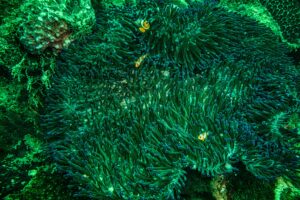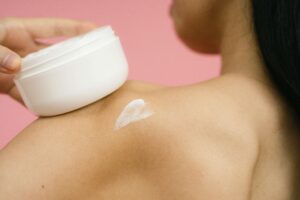Ocean-Friendly Beauty

In recent years, the beauty industry has made significant strides towards sustainability and eco-consciousness. Yet, amidst this progress, one crucial aspect often overlooked is the impact of beauty products on marine ecosystems. From harmful chemicals leaching into waterways to non-biodegradable packaging ending up in the ocean, the beauty industry has a substantial role to play in marine conservation. In this blog post, we’ll delve into the importance of ocean-friendly beauty practices and provide tips for avoiding harmful ingredients that pose risks to marine life.
The Importance of Ocean-Friendly Beauty
Our oceans are not only a source of natural beauty but also vital to the health of our planet. They regulate the climate, provide food and livelihoods for millions of people, and support a diverse array of marine life. However, human activities, including those associated with the beauty industry, are placing immense pressure on these fragile ecosystems.
Many beauty products contain ingredients that are harmful to marine life, either through direct pollution or indirect contamination of waterways. Chemicals like oxybenzone and octinoxate found in some sunscreens have been linked to coral bleaching and are detrimental to coral reef ecosystems. Similarly, microplastics, commonly found in exfoliating scrubs and toothpaste, contribute to marine pollution and harm marine animals when ingested.
Furthermore, the packaging used for beauty products often ends up in the ocean, adding to the vast amounts of plastic pollution already present. Single-use plastics, such as shampoo bottles and makeup containers, can take hundreds of years to break down, posing long-term threats to marine life and ecosystems.
Tips for Avoiding Harmful Ingredients
Read Labels and Avoid Harmful Chemicals: Take the time to read the ingredient labels of beauty products before purchasing them. Avoid products that contain harmful chemicals known to negatively impact marine life, such as oxybenzone, octinoxate, parabens, phthalates, and formaldehyde. Opt for products that use natural and biodegradable ingredients instead.
Choose Reef-Safe Sunscreens: When selecting sunscreen, opt for reef-safe formulas that are free from oxybenzone and octinoxate. Look for mineral-based sunscreens containing zinc oxide or titanium dioxide, which provide effective sun protection without harming coral reefs. Additionally, choose sunscreens with biodegradable packaging to minimize plastic pollution.
Avoid Products with Microplastics: Be mindful of products that contain microplastics, such as exfoliating scrubs, toothpaste, and some cosmetic formulations. These tiny plastic particles can easily enter waterways and harm marine life. Instead, opt for natural exfoliants like sugar or salt, and choose toothpaste and cosmetics that are certified microplastic-free.
Opt for Minimal Packaging: Choose beauty products with minimal or recyclable packaging to reduce your plastic footprint. Look for brands that prioritize sustainable packaging materials, such as glass, aluminum, or biodegradable plastics. Consider purchasing products in bulk or opting for refillable options to further minimize waste.
Support Brands with Ocean Conservation Initiatives: Research and support beauty brands that actively engage in ocean conservation efforts. Many companies partner with environmental organizations or contribute a portion of their profits to marine conservation projects. By purchasing from these brands, you’re not only supporting sustainable practices but also contributing to meaningful conservation initiatives.
DIY Beauty Recipes: Consider making your own beauty products using natural ingredients found in your kitchen. DIY recipes for face masks, scrubs, and hair treatments often utilize simple, biodegradable ingredients like oats, honey, coconut oil, and avocado. Not only are these homemade alternatives better for the environment, but they also allow you to customize formulations to suit your specific needs.
Spread Awareness and Advocate for Change: Educate others about the importance of ocean-friendly beauty practices and the impact of harmful ingredients on marine ecosystems. Encourage friends and family to make informed choices when purchasing beauty products and support legislation aimed at reducing plastic pollution and regulating harmful chemicals in personal care products.

As consumers, we have the power to drive positive change within the beauty industry by making conscious choices that prioritize ocean conservation. By avoiding harmful ingredients, choosing reef-safe products, minimizing packaging waste, and supporting brands with sustainable practices, we can minimize our impact on marine ecosystems and contribute to a healthier planet. Let’s commit to ocean-friendly beauty practices and work towards a future where beauty and environmental stewardship go hand in hand. Together, we can protect our oceans for generations to come.

